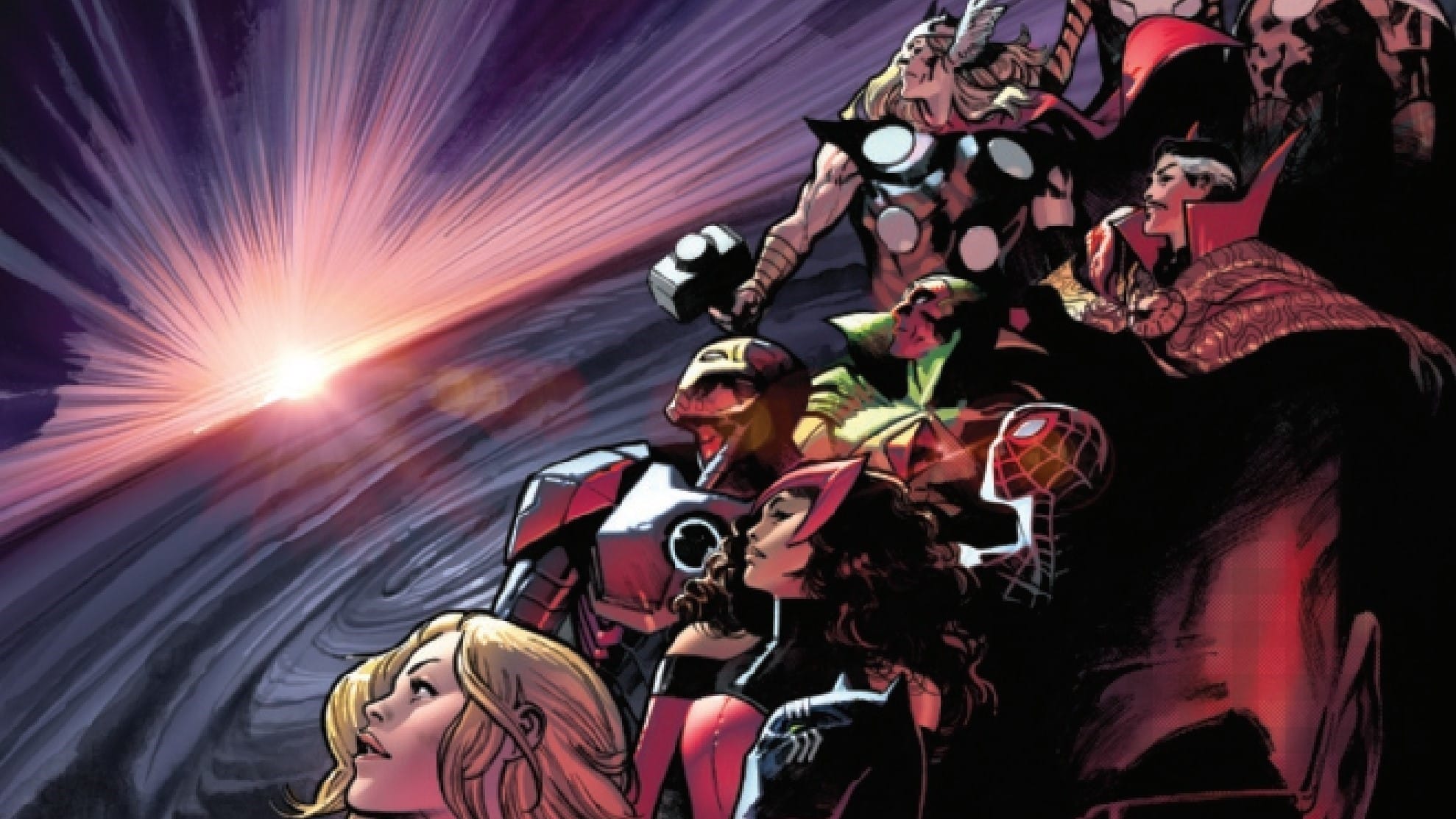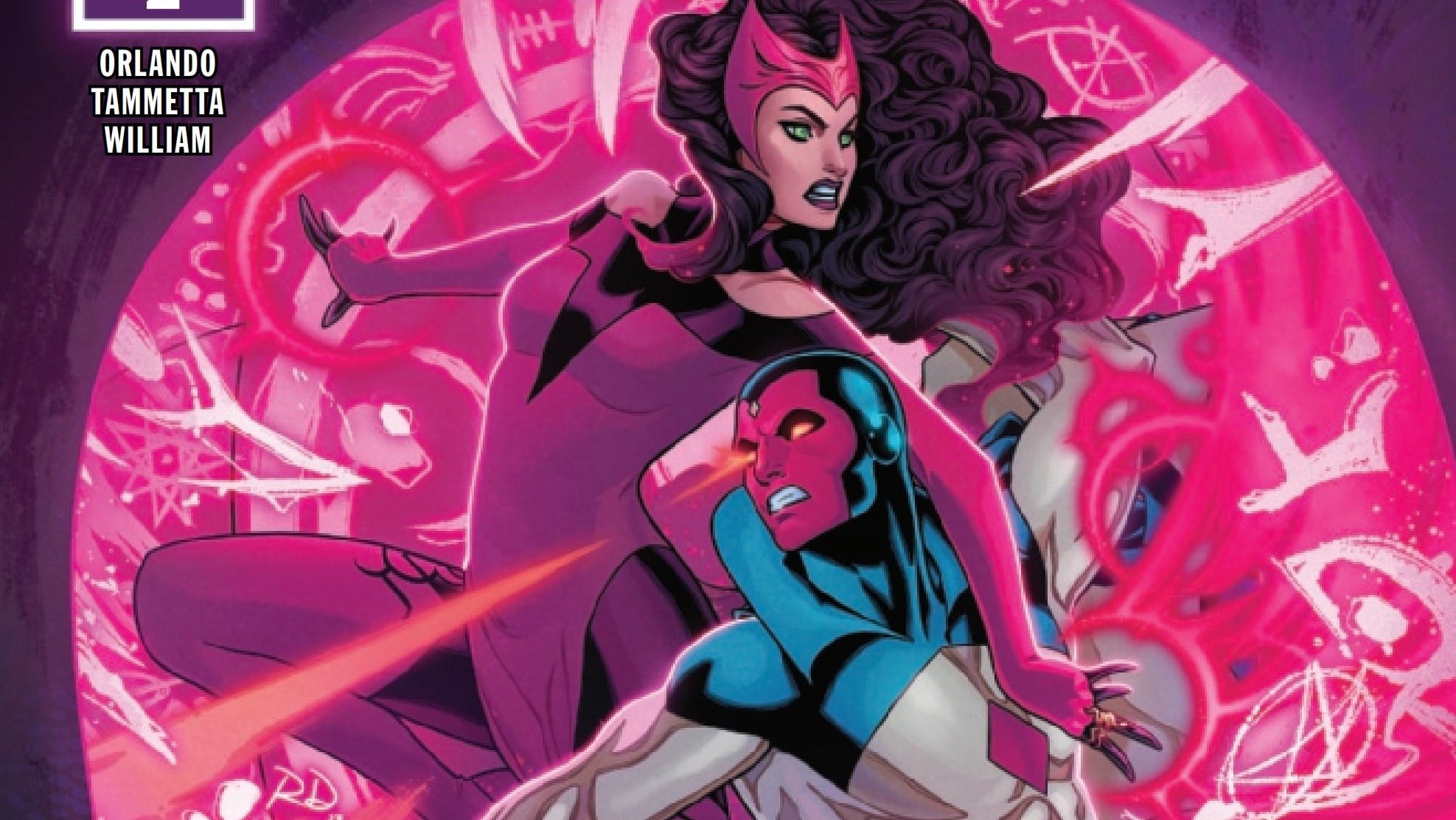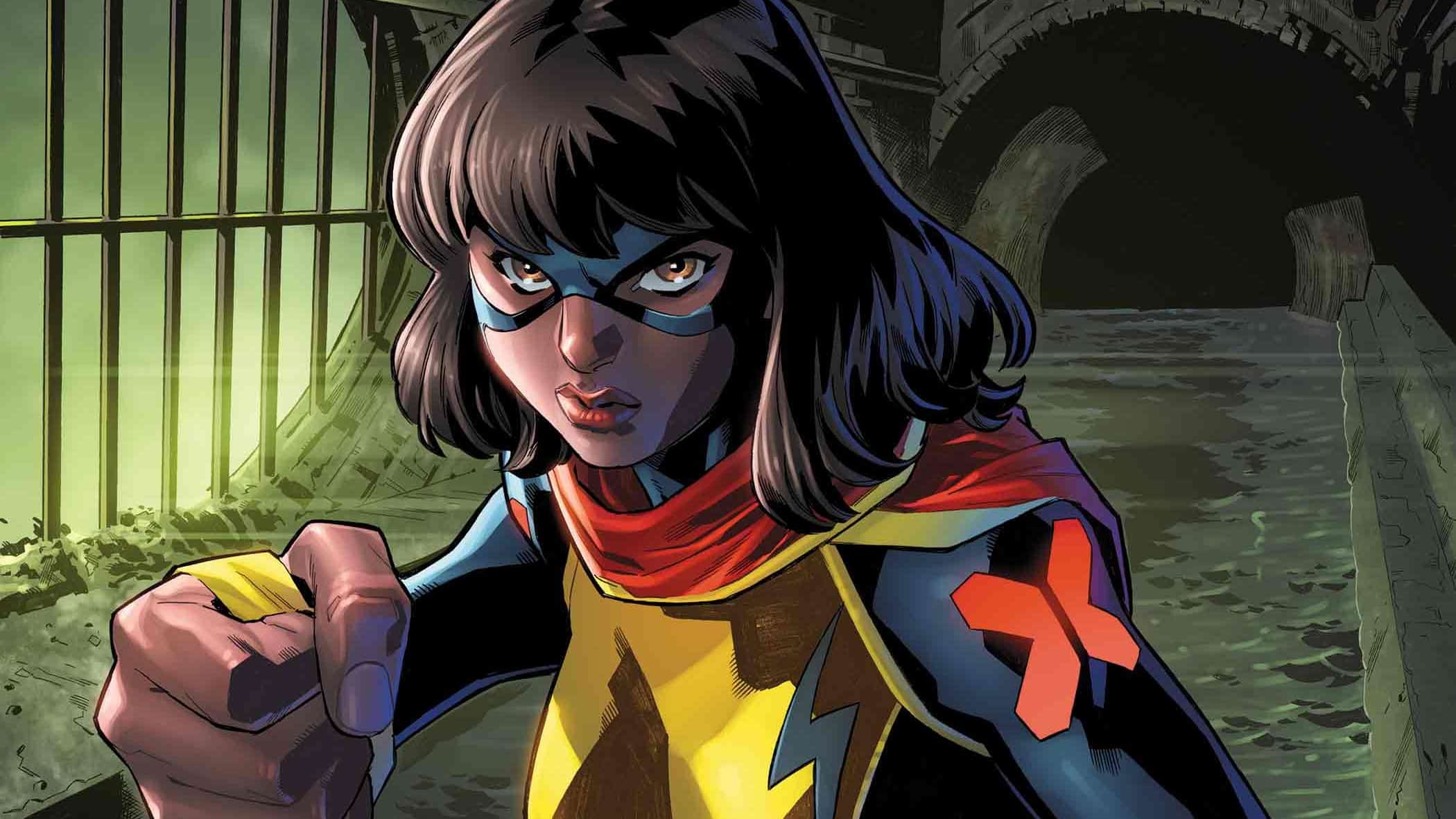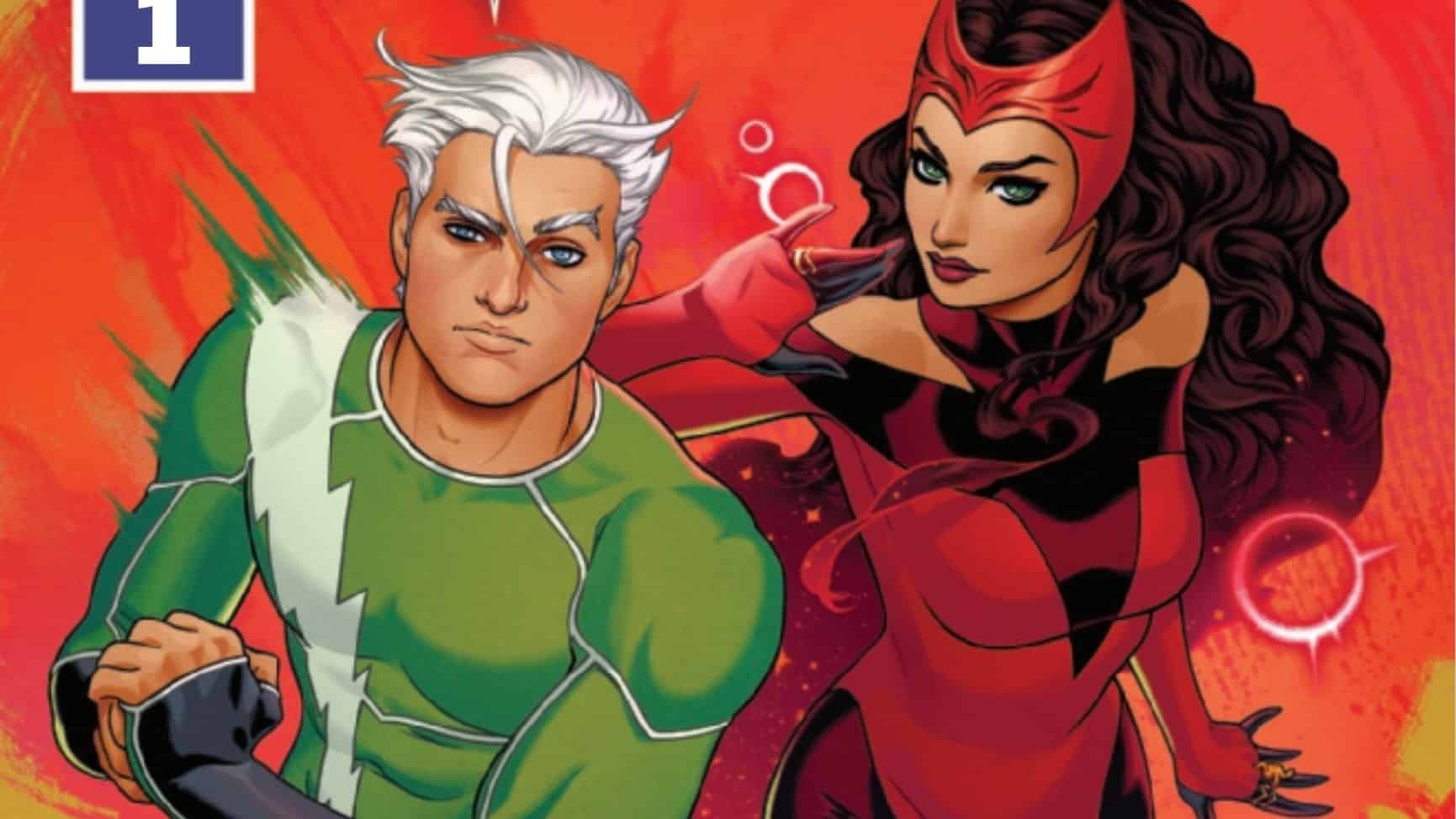The King of Hell era of Ghost Rider comes to a close in the middle of another King’s saga in King in Black: Ghost Rider #1 by Ed Brisson, Juan Frigeri, Jason Keith, and Joe Caramagna.
So, normally when we talk about “meta” comics, we’re referring to comics that by their narrative seem to intentionally call attention to their very fictionality. They break the fourth wall, comment on themselves, talk directly to the reader, etc etc.
But there’s another kind story that I don’t think we have a good word for, one that does not intentionally attempt metafiction, but due to odd elements or circumstances does still lead us to think not about the characters and plot of the comic, but the nature of the comic itself, how it came into being, and other things that surround the actual comic.
King in Black: Ghost Rider is one of those.
With every page, every panel, I could only think of how we got here. This isn’t the fault of the creative team (and let’s get this out of the way here: Ed Brisson writes a compelling Ghost Rider story that, I think, deftly maneuvers between the needs of an event tie in and the needs of the ongoing Ghost Rider narrative, while Juan Frigeri portrays a fun cast of symbiotes and hellspawn; they do the best they can with the hand they’ve been dealt, and if you’ve been enjoying Ghost Rider recently, you should read this issue). It’s the fault of Marvel Comics and their parent company.
Two years ago, Brisson and Frigeri (as well as Aaron Kuder) began revitalizing the world of Johnny Blaze and, more broadly, Marvel Infernal in the wake of the Damnation event. Hell felt revitalized by the new role of Johnny Blaze and the new emphasis on more obscure characters like Marvel’s Lilith. Danny Ketch, perpetually The Other Ghost Rider, finally seemed to find his niche as the Spirit of Corruption. It seemed possible that Spirits might soon occupy a narrative role like Symbiotes; what other Marvel characters might be revitalized by becoming Riders? And as Game of Thrones scheming led to hotter and hotter conflicts, this corner of the 616 began to feel exciting again. How would the realms we know change? What dark deals would be made for power? And above all else, wow would a war below affect the Marvel universe above?
And then a global pandemic hit.
Ghost Rider was not only cancelled— four solicited issues, four issues that were planned, that likely had been at least partially completed, would never come out. Those solicitations:
Ghost Rider #8 by Brisson and Frigeri: “Enter the city of the damned! In a place beyond good and evil, Ghost Rider and Mephisto find a secret society of supernatural beings–and they aren’t fond of visitors!
Ghost Rider #9 by Brisson and Frigeri: “Classic Ghost Rider villains return! Danny Ketch might have punished Scarecrow, Deathwatch and Blackout before as a Spirit of Vengeance, but can he do the same as the Spirit of Corruption?”
Empyre: Ghost Rider #1 by Brisson and Jefte Palo: “An intergalactic war comes crashing into a supernatural showdown between the Spirit of Corruption and the Spirit of Pollution! But who will be left standing?”
Ghost Rider Annual #1 by Brisson, Howard Mackie, and Javier Saltares: “The one you’ve been waiting for – the return of Vengeance! Michael Badilino was a bad dude in life…and that landed him in hell. But not just any old rung of hell, a layer so deep it’s reserved for those special enemies of hell – one where a former Spirit of Vengeance may suffer for all eternity! As Lilith’s gambit against Johnny Blaze and Mephisto for the throne of hell heats up, you can bet other players will enter the arena… and Badilino will find a way to ride again as Vengeance!”
Clearly, the series was not drawing to a close. It was instead putting even more pieces on the board. We have some of those pieces now; the Annual clearly became Ghost Rider: Return of Vengeance, and this issue seems to be, like The Union, at least partially reworked from the Empyre tie in.
But Ghost Rider will not continue. That grand narrative seems to have now drawn to a close.
I’m not a businessman. I’ve got no head for profits. What I do know is this: during a global pandemic, Marvel chose to deprive many of their freelancers— unionless people who work for poor pay with no benefits, who generate the stories that Disney ultimately uses to generate literally billions of dollars in profits— of their livelihoods. Marvel cancelled series, or in some cases entire books. Sure, the creative teams were certainly compensated for whatever work had been done on Ghost Rider 8 and 9, but they remain, now, freelancers without a Ghost Rider book when previously there had been no indication that it would not continue. An abstract corporate entity didn’t make these decisions— people did. I don’t know how far up the ladder you have to go, but at a certain wrong, some person had the power to spend what must not be more than a fraction of a fraction of a rounding error in Disney’s gargantuan budget to keep people employed, and that person chose not to use it.
What’s really egregious here is that the work these particular freelancers were doing was the kind that serves as a long term investment for the company. They were revitalizing a stagnant corner of the shared universe. They were building the kind of complex status quo and longform story that doesn’t just allow for exponential new stories in the future, but serves as a meaty foundation for any potential adaptation. If Disney does look to try a Ghost Rider adaptation again, this story wouldn’t have been suited for the first outing, but it would have been a strong contender for season or movie 2.
Why am I talking about this here, in this review? Because King in Black: Ghost Rider is a story born out of that cancellation, and the horrible mindset that led to that cancellation. Brisson and Frigeri were given a chance not to continue adding value to Disney’s assets, to its IP, but to quickly tie up loose ends. They do this cleaning while symbiote dragons fly around, in order to justify Marvel’s decision to slap a logo on the cover that would encourage Venom collectors to add it to their pulls.
Imagine if HBO cancelled Game of Thrones with a one hour special where most (though not all) of the surviving characters find reasons to just drop what they’re up to and return to whatever they were doing in the pilot, leaving them somewhere stable just in case HBO ever wanted to pick up the property again. And imagine an incidental scene implies that Westeros was just another Westworld theme park, or something, to get those viewers to tune in. Watching that episode, everyone involved, the cast, the crew, the writers, directors, George RR Martin himself, all might have done excellent work, but you likely wouldn’t be thinking about that as you watched it. It would be an episode of television that above all else makes you think about why it exists, not what it depicts.
KiB: Ghost Rider is that sort of story.
The Spirit of Corruption is a contribution to the Marvel Universe that seems to be sticking around. Further, the issue teases one potential thread that might be revisited in the future. Beyond that, it functions as a quick end to the narrative that finds reasons to return characters to the kind of generic state such that Marvel editorial doesn’t have to really worry about what Johnny Blaze or Mephisto were up to in recent years, if someone comes in with a Ghost Rider pitch or otherwise just wants to drop them into a story. There’s a chance that these creators get to work on these characters again, or that they get to continue their story, but the comic really does read like, above all else, a comic that wants to make sure things are tidy for someone else.
It is a well-made comic by a good creative that seems to conclude an interesting era for these characters. It is also a comic that above all else invites frustration and cynicism.
If you’re a person in power at one of the wealthiest entertainment companies in the world, and you employ, for pennies, a few freelancers working on stories that might generate for you billions of dollars in profit, I do think that, morally speaking, especially in such a time of hardship, you owe those freelancers not only their expected meager paychecks, but also the chance to finish their story (or, I should say, to finish your story, since they do not own the things they create for you). I think the creators involved in this story are going to be ok, for now, but we all know how rarely a comics career leads to real stability throughout one’s life. We know how easily one cancelled or renewed book can change one’s life. We know, later on, how comics creators often end up.
Because the comics industry is predicated on unjust employment practices, the meta-by-happenstance comic is usually one that leads to thinking about such a person. I turn the pages, but I don’t take in the bright colors, the booming SFX, the twists and turns. I just see that person, well-dressed, well-rested, a car and mortgage paid for by the labors of people who die while waiting for medical GoFundMes to fill.
And in the fantasy where I ever get to speak to such a person, I know what I want to ask:
As you go about your day, as you cut budgets and stories and works of art and paychecks and lives,
Do you think about Hell?
Do you believe in Hell?
I think, someday, you will.
Robert Secundus is an amateur-angelologist-for-hire.






